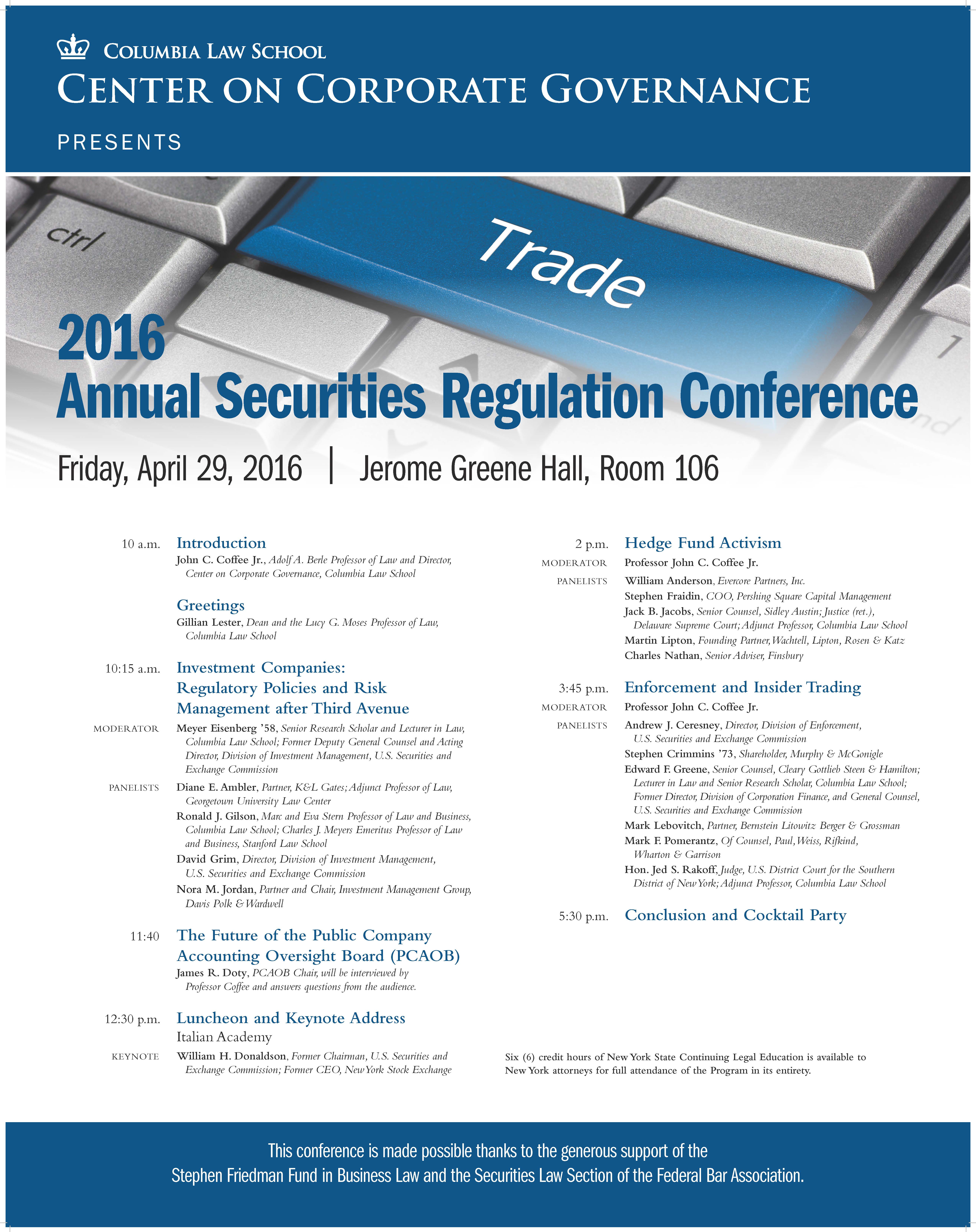Bankruptcy and Restructuring
The Hostile Poison Pill
Whether one ascribes to the agency theory of shareholder primacy or the contractarian theory of director primacy, boards of directors have great discretion in determining whether, when, and how to sell the corporation. Defensive tactics, like poison pills, can be …

Private Offerings and Public Ends: Reconsidering the Regime for Classification of Investors Under the Securities Act of 1933
To achieve a growing number of public, social, civic goals, we draw on the power of financial markets. Parents who can afford to save for the cost of their children’s college education rely on the market when they put money …

What Drives Corporate Inversions?
A corporate inversion involves the relocation of a corporation’s legal domicile to a lower-tax nation (host country) while retaining its material operations in its higher-tax country of origin (home country). Corporations have been engaging in inversions for over three decades. …

The Threat of Hedge Fund Activism Disciplines Managers and Benefits Shareholders. But What Happens to Creditors?
Hedge fund activism is the latest rave in corporate governance. Activist hedge funds build stakes in target firms in order to press management for various changes. When managers are uncooperative, they may just be forced to step down. Lest you …

Financial Distress Risk in Initial Public Offerings: How Much Do Venture Capitalists Matter?
On January 7th 2016, Thomson Reuters and the National Venture Capital Association (NVCA) published their Exit Poll Report, which stated that in the U.S. 77 venture capital (VC)-backed initial public offerings (IPOs) raised $9.4 billion in 2015. Over …
Notice of Opportunity: Have You Ever Thought of Entering Academia?
Columbia Law School is looking for an Editor-at-Large to oversee and administer the Columbia Law School Blue Sky Blog. The Blog, now completing its third year, has grown rapidly and become one of the most read sources of current information …

CEO’s Inside Debt and Dynamics of Capital Structure
A widely-held view in financial economics is that CEOs holding a non-diversified wealth portfolio tied to the firm are likely to be more risk-averse when making corporate decisions than what diversified shareholders would prefer. To reduce this divergence in attitude …

Bond Market Investor Herding: Evidence From the European Financial Crisis
Herd behavior is a widely used notion met in different contexts and disciplines, from neurology and zoology to sociology, psychology, economics and finance. In economics and finance the term herd behavior usually suggests the process where agents tend to imitate …

The Association Between Corporate General Counsel and Firm Credit Risk
The role of the corporate general counsel (GC) has evolved over the past several decades. Traditionally, the GC served as an internal monitor via his/her gatekeeping functions to ensure that firms and their personnel acted legally and responsibly in business …
Shearman & Sterling explains SDNY Bankruptcy Court Holding That Avoidance Powers Can Be Applied Extraterritorially, and Resulting Split Within the SDNY
On January 4, 2016, the United States Bankruptcy Court for the Southern District of New York (the “Bankruptcy Court”) deviated from SDNY precedent and held that, despite the absence of clear Congressional intent, the avoidance powers provided for under Section …
Latham & Watkins explains US Loan Market Adaptations to European Bail-In Directive
European Economic Area (EEA) financial institutions are now subject to a new set of regulatory requirements designed to avoid taxpayers bailing out banks in the event of another banking crisis — a central component of which is that EU member …

CEO Power, Government Monitoring, and Bank Dividends
In September 2007, Northern Rock, a British bank, sought and received liquidity support from the Bank of England because of financial difficulties resulting from the global financial crisis. As a result of mounting political pressure that Northern Rock was exploiting …

Time to Settle Sovereign Debt’s “Trial of the Century”?
Once again, NML v. Argentina is in the spotlight. Sovereign debt’s “trial of the century”[1] has been the focal point of intense academic and policy debates, prompted a Supreme Court decision, and even triggered a contested default by Argentina …

Securitisation and Post-Crisis Financial Regulation
There are few types of debt as internationally issued and traded as the debt securities issued in securitisation (in the United States, spelled securitization) transactions. European investors commonly invest in securities issued in U.S. securitisation transactions, and vice versa.
It …

Why Banks Want to Be Complex
The quasi collapse of the global financial system during the crisis of 2007-2009 has triggered an extensive debate about the role of large complex banks. On the one hand, banks are seen as “too complex to fail”, and researchers and …

The Fed’s TLAC Proposal Would Impose the Costs of Resolving Failed Megabanks on Ordinary Investors and Taxpayers
In two previous posts,[1] I described the financial industry’s “single point of entry” (SPOE) strategy for resolving failed megabanks. The SPOE approach – which has been endorsed by the Federal Reserve Board (Fed) and other regulators – could be …

Commercial Bank Regulation and the Investment Banks
The conventional story around the Gramm-Leach-Bliley Act is that it was the final blow in bringing down the Glass-Steagall Act wall that separated commercial and investment banking in 1999, increasing risky business activities by commercial banks and inadvertently precipitating the …

Macroprudential Policy: What Does It Really Mean
The global financial crisis forced regulators to realize that traditional monetary measures cannot adequately ensure financial stability. As an alternative, macroprudential policy can complement and supplement monetary policy in dealing with macroeconomic as well as stability issues. Yet the debate …
A Plan of Action to Save the Brazilian Infrastructure System
The oil sector is believed to represent approximately 13% of the Brazilian economy. Petrobras, the state-controlled, corruption stricken oil producer and by far the country’s largest corporation, is an important component of the current economic crisis. Due to mismanagement and …
 Sky Blog
Sky Blog
